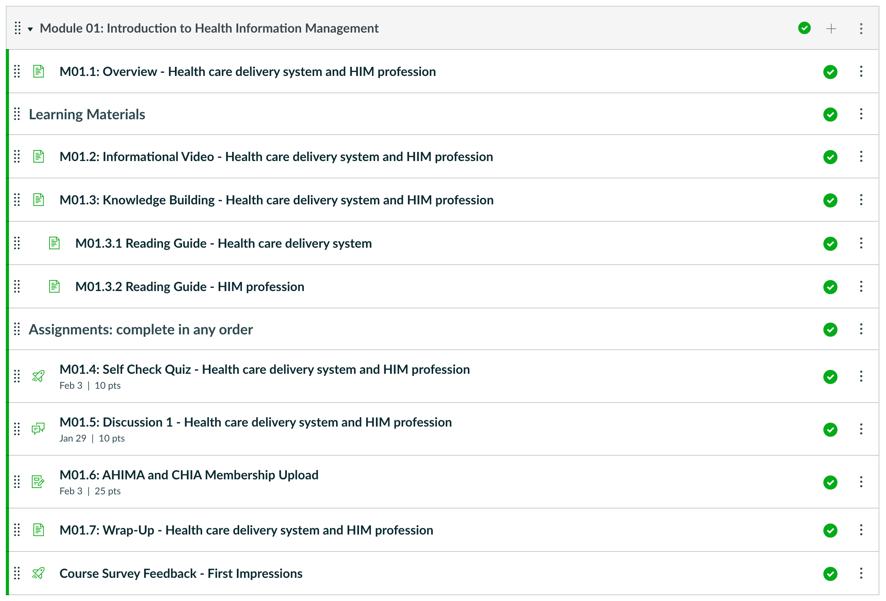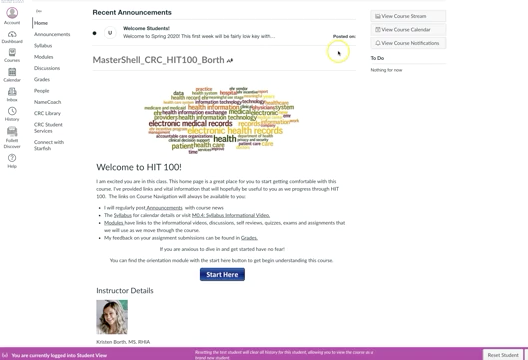
Instructors never want their own limitations to impact their students. Each edit, modification, and attempt to update an online course is done with the idea that it will make the content learnable for students. But oftentimes we are doing it blind. The OEI rubric taught me how to teach my online class content in a manner that was effective for my students. The benefits are too numerous to summarize; however, one area stands out as the pillar of growth in my online teaching experience. The rubric forced me to create a methodical and structured online course which encourages consistent support and knowledge for the learner from the educator.
In theory structure is simple and something that should already be a part of any course. However, the truth is when we look at our course from an outsider’s perspective it is often not as structured as we believe. Each instructor can use the same learning management system in many different ways. Each student can navigate a course in a number of ways. So, the simple structure that we as educators believe we have created can become complex quickly with all the options. The methodical outline and consistent structure that the OEI rubric encourages helps students know how to utilize this online course in the instructor intended manner. This can be done through videos and structured modules.

Videos like the one below help guide students to some of the main areas they would be visiting while working through the course content. Students receive guidance from their instructors on how to utilize the information and navigation within their course.

When our courses are easy to navigate and provide guidance on how to learn in an online environment, our students can focus more energy on learning the content provided. And isn’t that the goal, to help students be more knowledgeable on the content we are teaching them?
Author:
Kristen Borth, MS, RHIA
Director & Professor, Department of Health Information Technology
Any opinions, findings, and conclusions or recommendations expressed in this publication are those of the author(s) and do not necessarily reflect the views of the Foothill-De Anza Community College District or those of the California Community College Chancellor’s Office.
